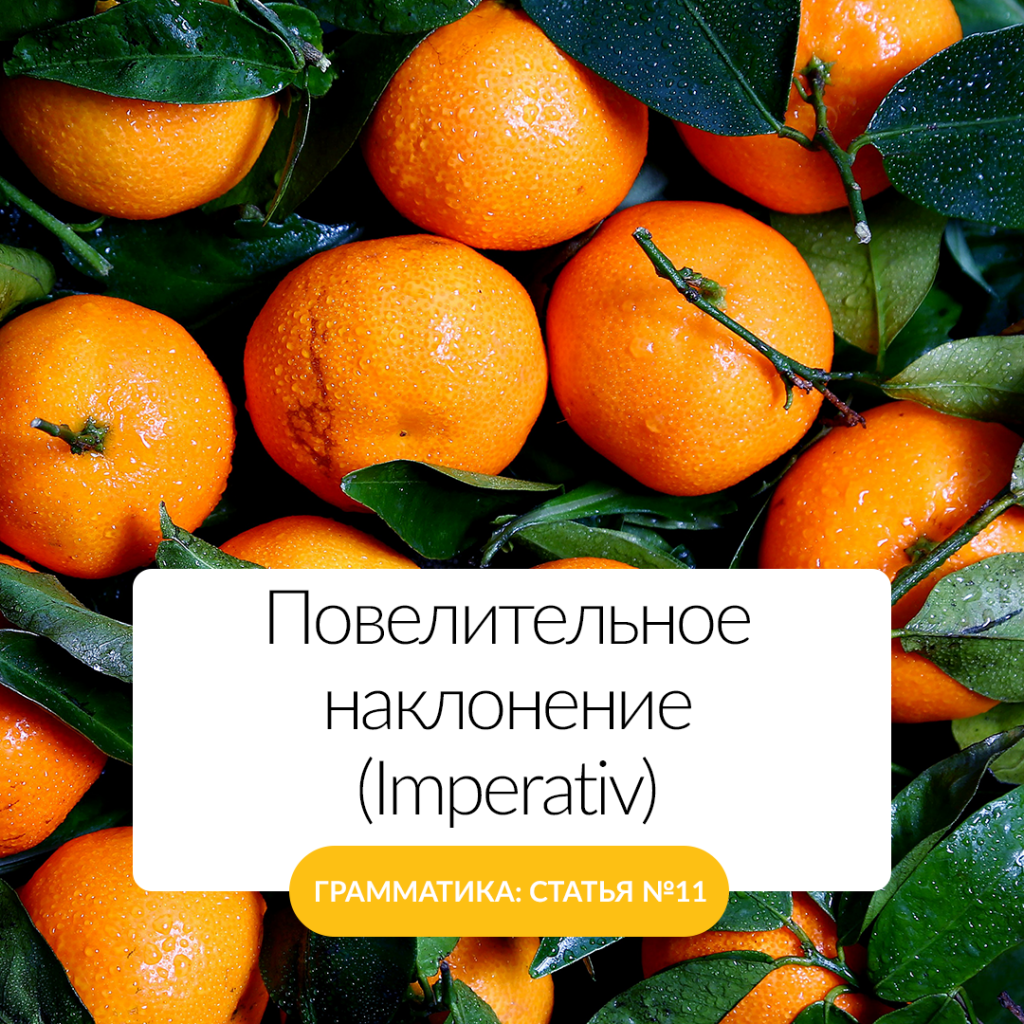In our today’s material on grammar we will talk about the imperative mood, called in the German language Imperative. We use it when we express a request, order, recommendation, etc. to another person or group of persons. In general, we tell another to do something: we call for action. We can call in three faces: du (you), ihr (you), Sie (you).
Education imperative sentences To form imperative sentences, we put the verb at the very beginning (as in the question, but speak without interrogative intonation) and put the verb in imperative form. Here the rules for the formation of imperative verbs differ from different persons: du Remove the ending and leave the root of the word: infinitive – kommen> du kommst> imperative – komm !; Komm heute zu mir! – come to me today !; ihr Put the verb at the beginning of the sentence: Sprecht lauter! – speak louder!; Sie We put the verb in the first place and be sure to use the pronoun “Sie” in the sentence: Fangen Sie bitte an! – start! If the verb root ends with “-t / d” or “-m / n”, then you must add the letter “e” before the ending in the second and third person singular and in the second person plural. These verbs leave “e” and in the imperative mood. Arbeite schneller! – work faster!
Arbeitet schneller! – work faster!
Arbeiten Sie schneller – work faster (polite form)! We should also separate the verbs “haben” and “sein”: Du – hab Respekt! – have respect!
Ihr – habt Respekt! – have respect!
Sie – haben Respekt – have respect!
Du – sei aufmerksam! – be careful!
Ihr – seid aufmerksam! – be careful!
Sie – seien aufmerksam! – be careful! In the second person singular, the vowel is sometimes replaced at the root, this replacement also remains in the imperative: the infinitive – essen> du isst> imperative – iss !; Alternation a / ä does not apply to imperative: infinitive – fahren> du fährst> imperative – fahr !; Please note that detachable consoles are separated in the imperative: Ruf mich an! – Call me! Do not forget that the imperative can be replaced with the modal verb “sollen”. This is a more polite option: Du solltest aufmerksam sein – you should be careful. Add courtesy is also possible with the help of “bitte”: Hilf mir bitte! – help me please! Without this, the infinitive may sound too familiar.
Education imperative sentences To form imperative sentences, we put the verb at the very beginning (as in the question, but speak without interrogative intonation) and put the verb in imperative form. Here the rules for the formation of imperative verbs differ from different persons: du Remove the ending and leave the root of the word: infinitive – kommen> du kommst> imperative – komm !; Komm heute zu mir! – come to me today !; ihr Put the verb at the beginning of the sentence: Sprecht lauter! – speak louder!; Sie We put the verb in the first place and be sure to use the pronoun “Sie” in the sentence: Fangen Sie bitte an! – start! If the verb root ends with “-t / d” or “-m / n”, then you must add the letter “e” before the ending in the second and third person singular and in the second person plural. These verbs leave “e” and in the imperative mood. Arbeite schneller! – work faster!
Arbeitet schneller! – work faster!
Arbeiten Sie schneller – work faster (polite form)! We should also separate the verbs “haben” and “sein”: Du – hab Respekt! – have respect!
Ihr – habt Respekt! – have respect!
Sie – haben Respekt – have respect!
Du – sei aufmerksam! – be careful!
Ihr – seid aufmerksam! – be careful!
Sie – seien aufmerksam! – be careful! In the second person singular, the vowel is sometimes replaced at the root, this replacement also remains in the imperative: the infinitive – essen> du isst> imperative – iss !; Alternation a / ä does not apply to imperative: infinitive – fahren> du fährst> imperative – fahr !; Please note that detachable consoles are separated in the imperative: Ruf mich an! – Call me! Do not forget that the imperative can be replaced with the modal verb “sollen”. This is a more polite option: Du solltest aufmerksam sein – you should be careful. Add courtesy is also possible with the help of “bitte”: Hilf mir bitte! – help me please! Without this, the infinitive may sound too familiar.

